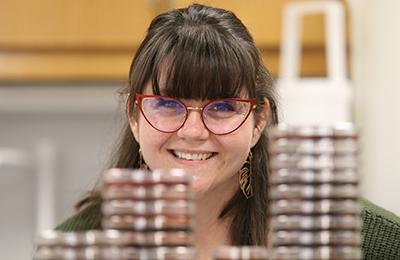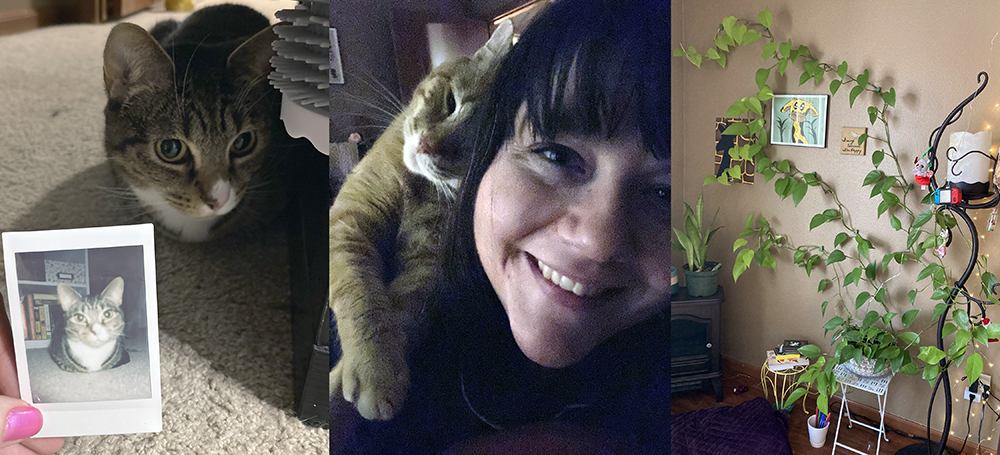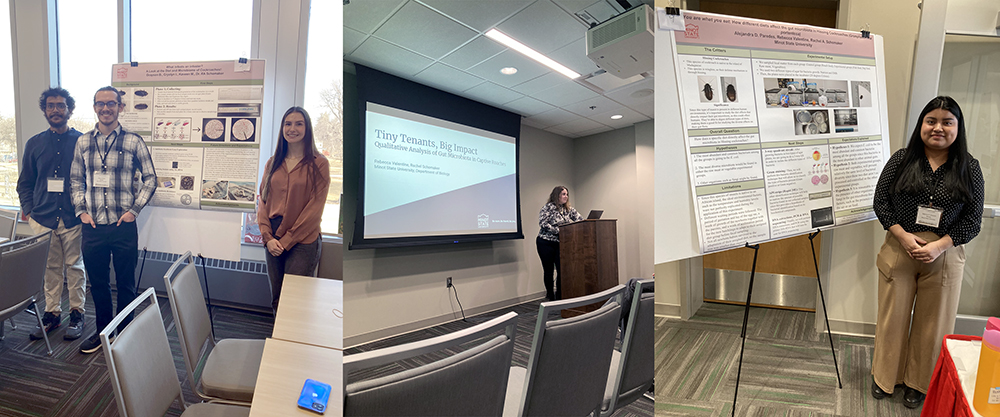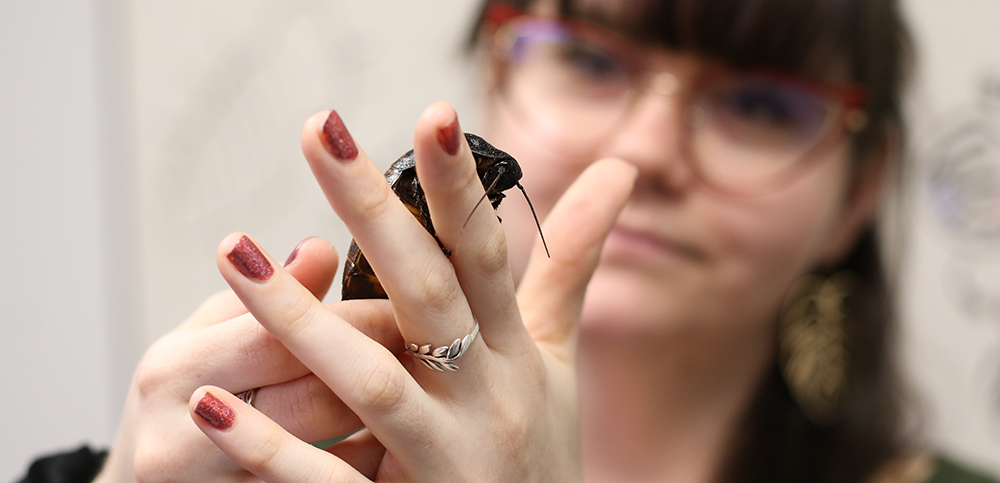
MINOT, N.D. – Rachel Schomaker's journey in biology began with a simple curiosity about the creatures in her backyard. This early fascination has since evolved into a lifelong passion for exploring the wonders of the world around her.
Schomaker, the inquisitive Deland, Florida native, joined Minot State University in the fall of 2022. Her interests led her to the Florida Southern College of Biology, where she earned her Bachelor of Science degree in Biological Sciences, and then to the University of South Carolina to pursue her doctorate in ecology and evolutionary biology, where she had the opportunity to teach and mentor students. Her educational background, marked by these significant achievements, is a testament to her dedication and passion for her field. Now, she is able to share her knowledge and passion for biology with the students she teaches.
Minot State’s University Communications interviewed Schomaker to learn more about her career at MSU.
Can you give us a little background on your life before Minot State?
RS: I grew up in a rural town in central Florida, where I spent a lot of my childhood playing outside in nature — my mom was constantly wary of what critters I would try bringing into the house every day. Clearly, I was destined to be a biologist! When I was younger, I wanted to be a veterinarian, and then a pediatrician, and then a toxicologist. I have always struggled with having too many interests and not enough time. In high school, I explored a lot of options by making connections through extracurricular activities, and then I ended up at Florida Southern College for Biology with the intent of heading to medical school. However, throughout my college experience, I found topics and classes that I loved far more than medicine — microbiology being my absolute favorite — and decided to change career paths in my junior year of my undergraduate career. I then chose to pursue a Ph.D. in ecology and evolutionary biology, focusing on how microorganisms respond to changes in resource availability.

What motivated you to pursue a career in academia, specifically as an assistant professor in biology?
RS: When you are a graduate student, part of your funding comes from being a teaching assistant, which means you teach laboratory courses associated with lecture classes taught by professors. It was during this time that I first obtained any teaching experience at all, and I really enjoyed it. I started pursuing teaching certificates and workshops related to teaching strategies a few years into my Ph.D. and was then given the opportunity to teach a full lecture course in the last year of my graduate career. I also mentored multiple undergraduates through individual research projects during this time, and getting to work one-on-one with the students and help them pursue their dreams was my favorite part of graduate school. All of these experiences combined led me to want to pursue a career as a professor — making connections with students and helping them develop their own interests and passions has always been very rewarding for me.
How would you describe your teaching philosophy, and what instructional methods do you find most effective?
RS: My teaching philosophy is rooted in student individuality and emotional learning. Overall, I have found it important to create an emotionally safe environment for students before asking them to engage with new material. When a student feels safe and comfortable in the classroom, they will feel more at ease learning new, challenging material, which allows for more connections and deeper learning between concepts. I create this community in many ways, but one of the most effective ways that I’ve found students respond well to is by giving the opportunity to provide anonymous feedback on how the learning experience is going for them throughout the course of the semester. I will give them a notecard or use Microsoft forms to allow them to give me feedback on, one, how they are feeling about the material, two, how they are feeling about my instructional methods, and three, how they are feeling in general outside of the classroom. This allows them to provide information on what they’d like to see more of or what they’re struggling with so that I can adjust my instruction as needed. Every new cohort of students that enters my classroom is different, and thus, it is important to learn what each group needs so that I can communicate with them effectively.
Which class is your favorite to teach and why?
RS: Microbiology! The critters are charismatic, and everything we learn can be relevant to medicine or to ecology, which makes it a fun, broad class to teach. In my upper-level microbiology course, I also allow students to develop their own research project to pursue in the class, and that is such a fun experience for me because I get to stoke their creativity and allow them to have more power in the classroom and over their learning experience.

What are your primary research interests in biology? Are you able to involve your students?
RS: I am generally interested in how resource availability changes organismal physiology at the genetic and morphology level. I currently have five research students working with me in my lab, who are all looking at different aspects of how the diet of domesticated cockroaches changes the diversity and physiology of their gut bacteria.
What is your approach to mentoring undergraduate and graduate students in research and academic pursuits?
RS: My goal with mentoring students is to always ensure that the student comes first, and the research comes second. The aim of a research experience for students is to gain new experiences, learning techniques, methods, and skills they have not had a lot of exposure to. I try to cater projects to the interests that the students have, so that they feel motivated and interested in the research they are doing. I think that it is important to know what each student’s strengths and weaknesses are so that we can address them properly in the project design and so they can feel comfortable adjusting the project as needed to still be successful in the experience.
Could you tell us about your life outside of work, family, hobbies, or other areas of interest?
RS: I am a jack of all trades and a master of none — I enjoy many hobbies and interests outside of work. I collect and sell plants, and I love creating things; I bounce between knitting, crocheting, puzzling, building Lego kits, painting, and experimenting in the kitchen on a near-daily basis. My partner and I have four sweet cats, and we all love trying new foods and traveling to new places!

About Minot State University
Minot State University is a public university dedicated to excellence in education, scholarship, and community engagement achieved through
rigorous academic experiences, active learning environments, commitment to public service, and a vibrant campus life.
Published: 04/25/24




